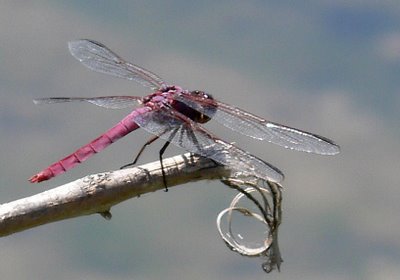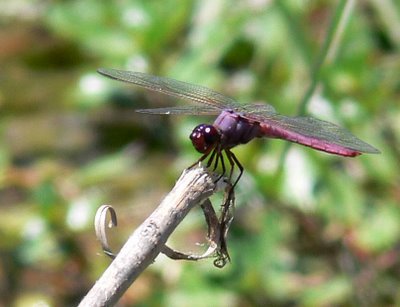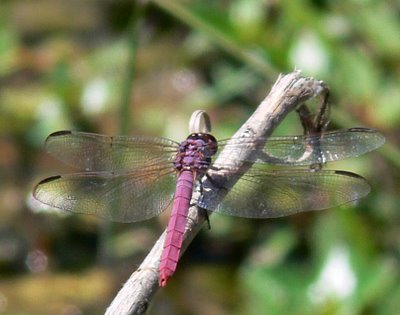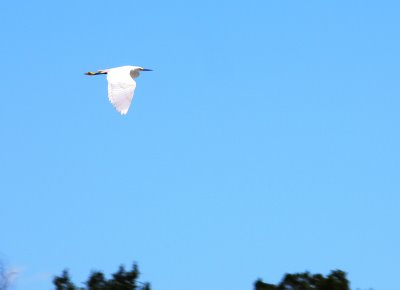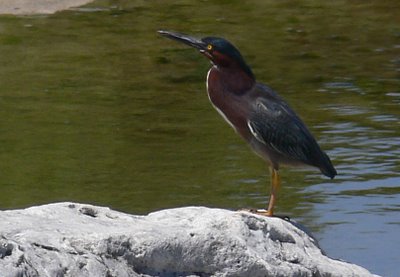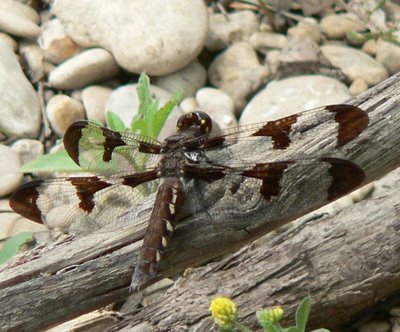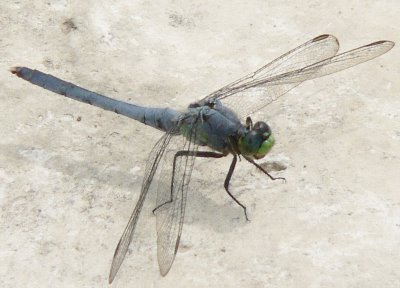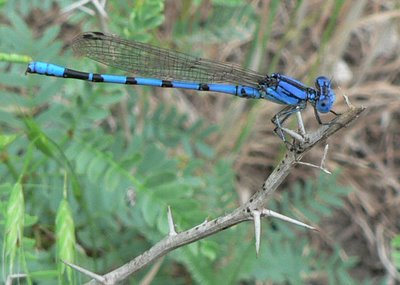There are just too many cars. And not only are there are more cars than there were four years ago, the cars are bigger. Strikingly so. I don't know the percentage of SUVs on the road, but if I had to guess I'd say 2 out of 3 passenger vehicles. (Lotsa Hummers. You don't see those much in Austin.) And of course there are huge trucks on the highway, in ever greater numbers. All drivers seem to go as fast as they can, and it is blindingly obvious to an outsider that the wider roads in which the good citizens of Houston have vested their hope of salvation from whatever circle of commuter hell they live in, will be insufficient to even come close to alleviating the congestion when the roads are finished, if they ever are.
When I got home I read that Texas has chosen this moment in the history of the planet--with world demand for oil increasing and the climate changing due to CO2 emissions--to raise our highway speed limit to 80. That's miles per hour, for any reader who may be from another country. So far it only applies to some selected portions of West Texas interstate highway, but I am sure we will be seeing 80 mph speed limit signs throughout the state pretty soon. The Governor, who wants to be re-elected, will no doubt take credit for the new speed limits, which, except among families of wreck victims, will be very popular.
For some time now I have felt like right-wing American politics has had the emotional core of a temper tantrum, as in: 4 year old child dissatisfied with life, falls to the floor weeping with indignation, bangs feet, fists, and head against an unyielding hard surface, which naturally causes pain in the body parts delivering the blows, leading to greater fury and louder outcry and redoubled efforts to make the process work. Red-state politics has that aspect.
I guess the people who drive the big SUVs imagine, somehow, that an 80 mph speed limit will make things better for them, even as they are banging their heads against the present reality of their daily drive to and from work, in which frustrated drivers enact personal dramas of reckless incivility and road rage as their increasingly desperate effort to pass the slower cars finally ends with a hard slam of brakes (and hopefully not rending metal) as they are stymied at last by the outliers of an inevitable iron wall of slowly moving and idling cars, a 50 mile stop-and-go Houston traffic jam enveloped in a pall of diesel smoke.
I know that when peak oil really does set in it will cause a lot of hardship. But sweet Jesus, maybe it will actually serve to rescue people from a life no one could actually want to live, if they could see an alternative.
Needless to say, I am glad to be home.
In a more upbeat coda, let me say I liked the LSU campus, which I had never seen. A live-oak canopy (perhaps obligatory for a southern university) shades most of the streets and sidewalks. There's a kinda bucolic campus lake circled, at least in part, with trails for walking and jogging. And I certainly liked the people I met in my daughter's academic department. We had lunch with her supervising professor, who was friendly and personable. My daughter gets along well with him, which is important.
And the search for an apartment was successful.
I took some photos of the birds on the campus lake. Below is a pair of wood ducks.






